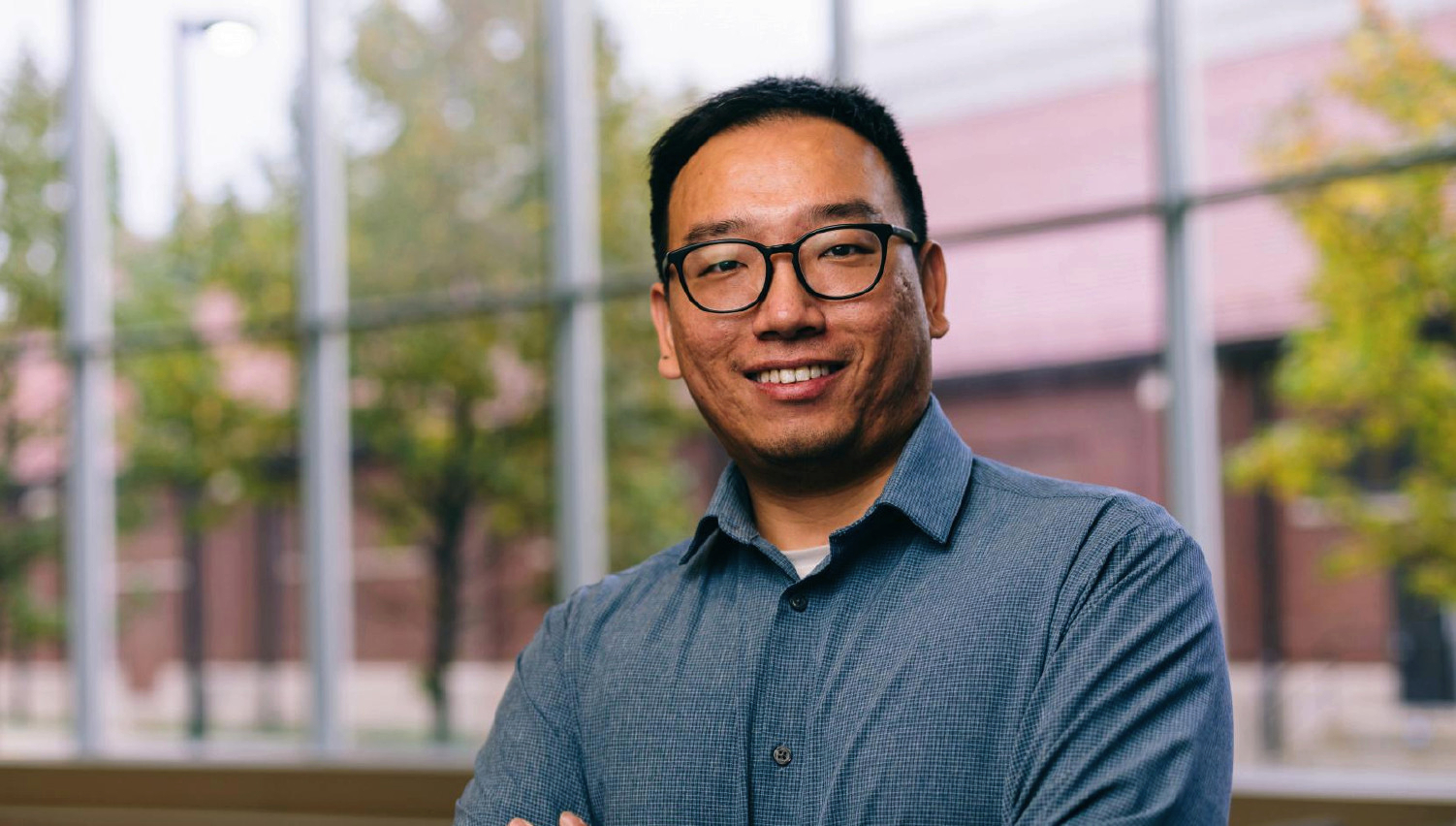Purdue’s SecureChain selected for NSF’s National AI Research Resource (NAIRR) Pilot
08-28-2025

Tianyi Zhang, professor of computer science at Purdue
Software vulnerabilities in global supply chains can spread like poisoned water, contaminating everything downstream. A project led by Purdue University researchers is one of 10 datasets chosen by the National Science Foundation (NSF) to address this urgent cybersecurity challenge as part of the National Artificial Intelligence Research Resource (NAIRR) Pilot.
SecureChain is a large-scale knowledge graph that maps more than 10.5 million software components and 440,000 vulnerabilities across multiple programming languages. Continuously updated, it gives developers, companies, and governments a real-time view of risks, making it possible to fix problems early and build more trustworthy software. By joining the NAIRR Pilot—an initiative designed to democratize access to critical AI datasets, tools, and computing resources—SecureChain will become a national resource for advancing cybersecurity research, education, and innovation using AI technologies.
"Data infrastructure and access to high-quality datasets are critical components of a thriving AI innovation ecosystem," said Katie Antypas, director of the NSF Office of Advanced Cyberinfrastructure. "But these efforts go beyond building data infrastructure — they will sharpen America's competitive edge and lay the foundation for a new era of leadership in science and innovation."
The project is led by Tianyi Zhang, assistant professor of computer science at Purdue, with Xiangyu Zhang, Samuel Conte Professor of Computer Science, serving as co-PI. Purdue PhD student Yifeng Di led the effort to build the knowledge graph, supported by PhD students Minghai Lu, Yuan Tian, Bonan Kou, Wei-Hao Chen, and Zhi Tu, who contributed expertise in data collection, web development and model training.
The multi-institutional collaboration also included Muhao Chen, Assistant Professor of Computer Science at UC Davis, who led natural language processing efforts with PhD student Hadi Askari; and Xiang Ren, Associate Professor of Computer Science at the University of Southern California, who guided work on a visual query interface with contributions from Shushan Arakelyan, now a researcher at Microsoft, and Siyuan Wang, a postdoctoral researcher at USC.
SecureChain has been supported by the NSF Proto-OKN (Prototype Open Knowledge Network) program since 2023, which aims to make complex data more accessible and interoperable across domains. Together, NAIRR and Proto-OKN advance a vision of AI-enabled knowledge sharing to tackle challenges ranging from cybersecurity to supply chain resilience and public health.
At Purdue, SecureChain draws strength from Center for Education and Research in Information Assurance and Security, (CERIAS), and the Purdue Programming Languages (PurPL) group, reflecting the University’s leadership in cybersecurity, software engineering, and artificial intelligence.
“SecureChain acts like a real-time water quality monitoring system for software,” said Zhang. “It shows exactly which downstream systems will be affected if an upstream component is compromised. This empowers organizations to respond quickly and protect critical systems.”
From protecting IT companies to safeguarding national infrastructure, SecureChain’s selection to the NAIRR Pilot highlights Purdue’s role in building the trusted, shared AI resources that will define the future of national security and innovation.
About the Department of Computer Science at Purdue University
Founded in 1962, the Department of Computer Science was created to be an innovative base of knowledge in the emerging field of computing as the first degree-awarding program in the United States. The department continues to advance the computer science industry through research. U.S. News & World Report ranks the department No. 8 in computer engineering and No. 16 overall in undergraduate and graduate computer science. Additionally, the program is ranked No. 6 in cybersecurity, No. 8 in software engineering, No. 13 in systems, No. 15 in programming languages and data analytics, and No. 18 in theory. Graduates of the program are able to solve complex and challenging problems in many fields. Our consistent success in an ever-changing landscape is reflected in the record undergraduate enrollment, increased faculty hiring, innovative research projects, and the creation of new academic programs. The increasing centrality of computer science in society, academic disciplines and new research activities — centered around foundations and applications of artificial intelligence and machine learning, such as natural language processing, human computer interaction, vision, and robotics, as well as systems and security — are the future focus of the department. Learn more at cs.purdue.edu.